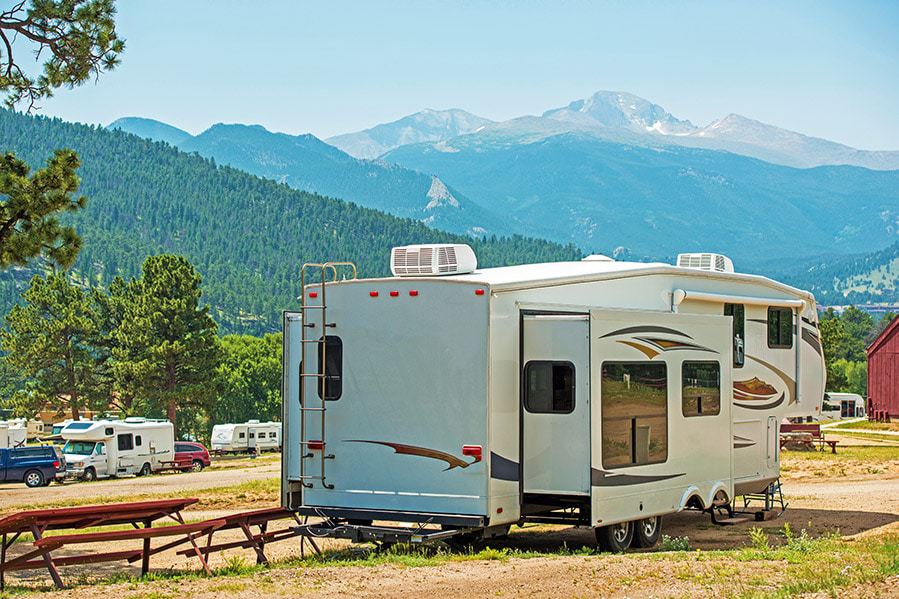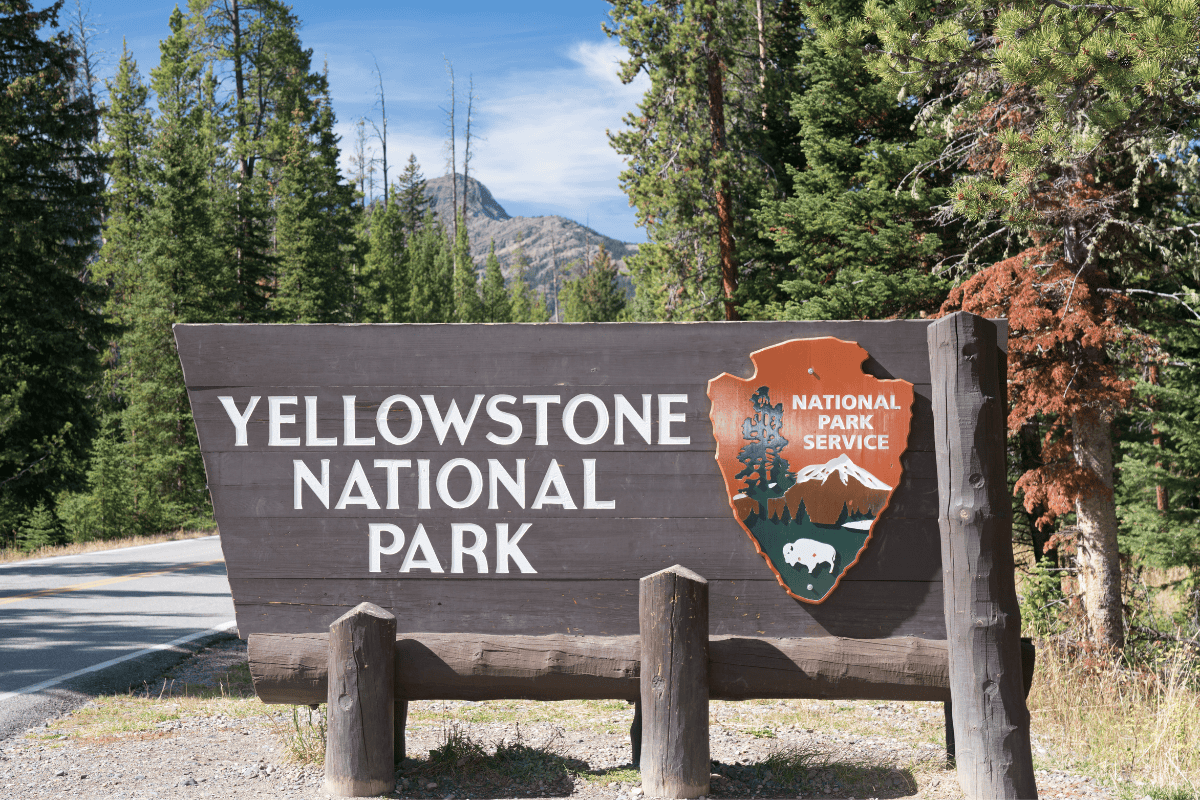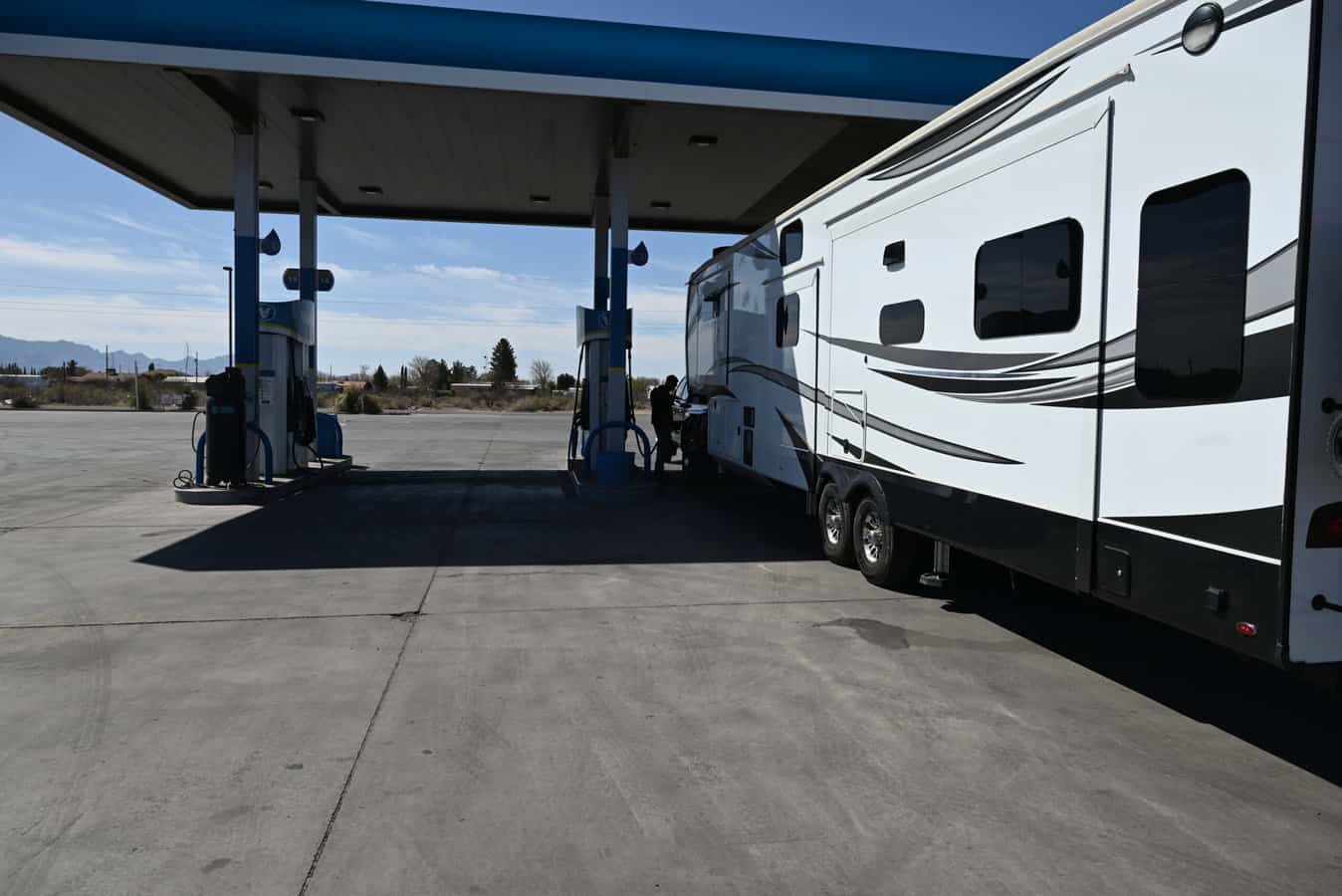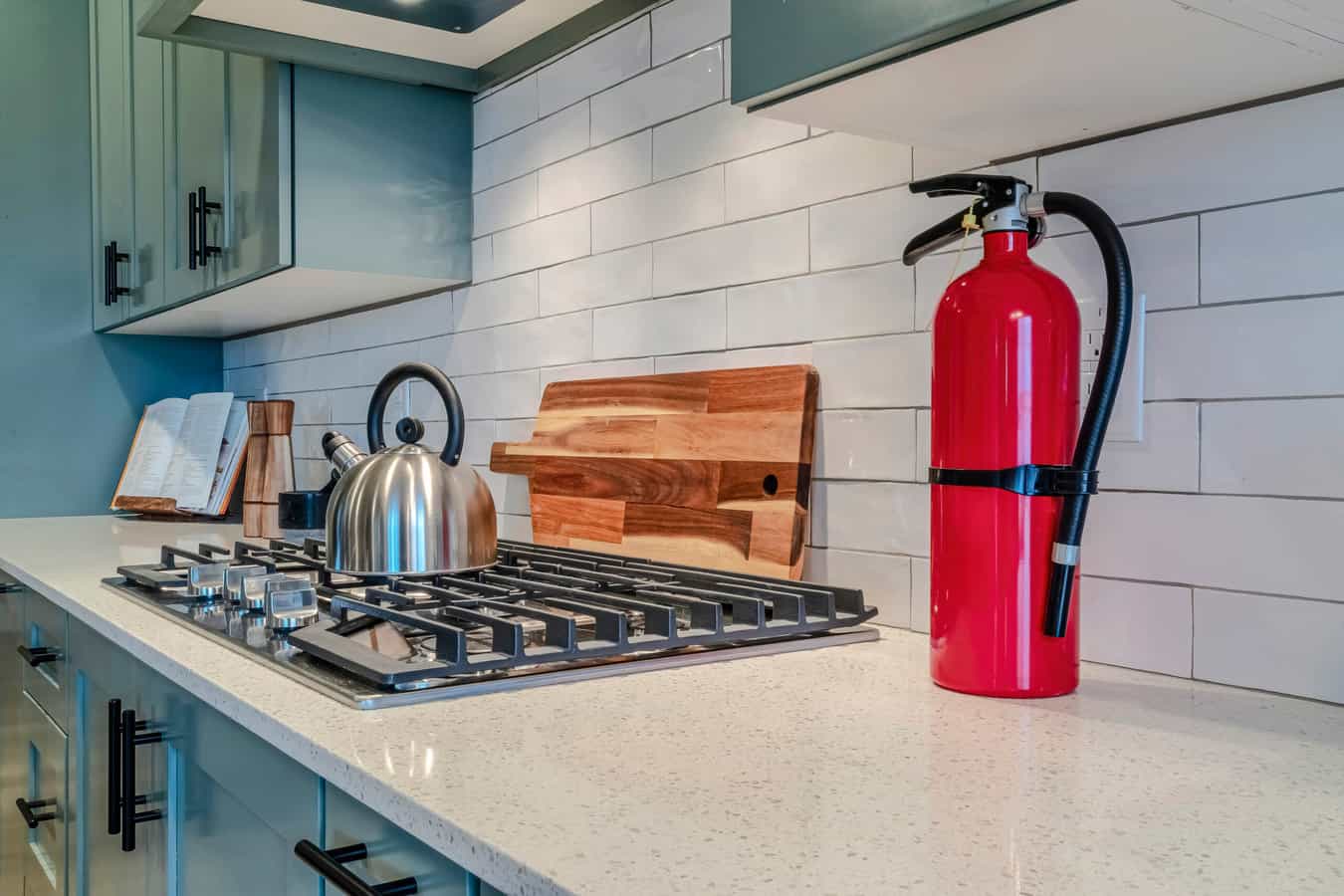
If I asked you to describe a car that’s a lemon, you could probably conjure up a mental image easily.
This is a busted-down vehicle, often produced decades and decades ago. Its paintjob is dingy, its tires are hanging on for dear life, and who knows what problems lie under the hood.This is the type of car that when you try to start its ignition, it takes numerous attempts before the engine kicks over. It’s like a small miracle every time the car does start.
You might think that ifyou’re shopping around for RVs that there are no lemons in the bunch. Afterall, you’re browsing for a new vehicle, so of course it would be made up tofactory standards and then some. Right?
If only that were the case. Lemons exist across all vehicle types, RVs included. While cars, trucks, and other commercial vehicles are often protected under what’s known as a lemon law, does the same apply to RVs?
In this article, I’ll answer that exact question. There will also be tons of useful tips for smart shopping so you don’t get stuck with a lemon yourself!
What Is a Lemon Law?
I thought it’d be best to start this article with a definition of a lemon law. These laws are typically only valid in the United States, so if you live elsewhere or buy your RV in another country, the law may not apply.
A lemon law is protection against vehicular issues related to performance and quality.
It counts for all sorts of vehicles, such as motorcycles, SUVs, trucks, and cars. Every single state in the US has its own version of the lemon law, which you can see on the DMV’s website. I won’t cover every single version, but there are certainly differences from state to state.
For instance, let’s talk about Kansas’ version of the lemon law for a moment, shall we? Their definition of a lemon is strict. You must have owned your car for a year. It’s best if it’s still under warranty, but not necessary. The issue with the vehicle must have been diagnosed and unsuccessfully fixed between four and 10 times. More easily, if your vehicle is out of commission for more than a month, it counts as a lemon.
In New Jersey, it’s different. First, your vehicle doesn’t have to be brand new. It can be a leased vehicle as well. In this state, it doesn’t take 10 times of trying to fix it for the vehicle to be considered a lemon. It’s only three times. Alternately, if your vehicle hasn’t worked for 20 cumulative days and it’s been driven 24,000 miles or owned for two years, then it counts as a lemon.
There are small changes from state to state then, as you can see. I recommend you learn the lemon law in your state as well as the states you travel to often. Knowledge is power, after all!
Is There a Lemon Law for RVs?
I mentioned that the lemon law applies to many vehicles, from cars to motorcycles and almost anything else on wheels. What about RVs? Do they fall under the jurisdiction of the per-state lemon laws I talked about above?
The answer is…it depends! Just like each state has its own version of the lemon law, some states protect RVs and others don’t. You can’t expect national lemon law coverage by any stretch of the imagination.
For example, Florida is one state that has lemon law protection for RVs. All the rules are covered in the Consumer Guide to the Florida Lemon Law. You should receive this guide when you buy your RV in Florida.
While RVs have certain protections in the state, your living facilities do not. This means any issues with the back windows (excluding the front passenger and driver’s windows as well as the windshield), exterior components, side entrance door, electrical systems, generator, furnace, roof air conditioner, plumbing system, and flooring will not be paid for under the lemon law. If these break or malfunction, you’re on your own.
If you’ve owned your RV for at least 24 months and you’ve taken it to get fixed unsuccessfully three times, it’s eligible under Florida lemon law protection. Said protection means liability is on the manufacturer. You must write to them and ask for warranty coverage to pay for the RV issues.
Texas is another state that extends lemon law coverage to RVs. If you buy, register, and title a travel trailer in the state, then this is also protected. You must have tried to get the problem fixed before your vehicle hits 24,000 miles or is two years old. Alternately, if you’ve tried unsuccessfully to get the problem fixed four times, then you could be protected under Texas lemon law.
You may also be able to call on the Texas lemon law if your RV has been broken down for 30 days straight and you have yet to drive it 24,000 miles or own it for two years. Finally, there’s also the serious safety hazard test. Under this test, the problem with your vehicle must be serious enough that explosions or fire could occur if it’s not fixed. Again, it’s best if this occurs before 24,000 miles or within two years of ownership.
Once again, as you can tell just by comparing Florida and Texas state lemon laws, there are significant differences. Look up your home state and see if there’s a lemon law and what it covers. I do just want to say again that RV lemon laws are not guaranteed, so keep that in mind.
Why Careful Shopping Is So Important
Regardless of which state you call home, if yours has an RV lemon law, it applies to new vehicles only. If you’re buying a used motorhome, then you get no lemon law protection. It doesn’t matter if you just put down money for a 2017 RV in 2018. If it’s used, then the lemon law does not apply. It’s as simple as that.
If you want to buy a used RV, you’re probably doing so because of the expectation that it will save you money. With no applicable warranty, though, and no lemon law to protect you, if you run into an issue, you’re going to have to shell out the money for repairs yourself.
That’s not to say thatyou should never buy a used RV. For many people looking to get their firstmotorhome, going used is the best bet. As mentioned, the biggest reason to buy used is to save money. You can pocket some cash while still getting a qualityvehicle. The emphasis there is on quality.
It’s up to you to ascertain the quality of a used RV. Do not just rely on the images and even videos you see of the vehicle online. Always request to see the RV in person.
Don’t stop there. Inspect the vehicle. Here’s a great article from Jim here at Camper Report about inspecting a used RV before signing on the dotted line. It has 100 different things to check. Although that may seem excessive, you want to go over every single one, some even twice.
You also want to ask for a test drive. Inspecting the RV in question is great and all, and it’s very necessary, but some things you can’t tell are wrong until you’re behind the wheel.
Remember, for every issue that arises with a used RV, you’re the one who has to pay for it. The third party has no responsibilities to pay, and the manufacturer definitely doesn’t. It all falls on you. By doing your due diligence, you can hopefully avoid as many issues with your used RV as possible.
On that note, I do want to say, don’t be afraid to walk away! If the used RV in question has severe water damage or other issues with the walls and roof, it’s not worth it. Major electrical and plumbing fixes will also set you back several thousand dollars in some instances. You want to be polite, yes, but don’t be so polite you back yourself into a bad deal.
Understanding and Making Use of Your Warranty
New RVs will come with a warranty. The length and coverage of said warranty will vary depending on the manufacturer. You may have to pay extra for the warranty, but I seriously caution you against declining it altogether.
Warranties, whether they’re good for four years or a lifetime, are practically a necessity as a new RV owner. I know, I know. You just sunk all that money into your shiny, new vehicle. Paying even a dollar extra for anything else may seem like too much to you right now.
If you run into any issues with your RV in the first few years of ownership (which I’ll talk more about in the next section) though, then you’re going to wish you had that warranty. Having money shaved off repair costs or even having some repairs covered for you can be a lifesaver. You’re just recovering financially from the major purchase that is your RV. Having to tack on the price of repairs on top of that can really hurt your wallet.
There are two types of basic warranties. The first is a listed component contract. This includes every part and component that the manufacturer would pay for if it malfunctions or breaks. Then there’s an exclusionary contract, also known as a bumper-to-bumper contract. Unlike the component contract, this is a list of what is not paid for.
Then there are extended RV warranties, which you may be interested in. If you want to be protected against RV parts defects after your original warranty is up, then an extended warranty is a good choice. These warranties often last well over two years, which may be when your original warranty runs out.
These are third-party in nature and may go through your insurance provider. It’s rare for RV manufacturers to offer extended coverage themselves, but you can always ask.
Just like with any warranty, you’ll have to start your extended warranty application with a claim submission. You’ll also need proof of maintenance and supporting documentation.
Also good to know is that extended warranties don’t cover 100 percent of the expenses all the time. You’ll have to pay a deductible, so anticipate those costs.
Is a New RV with Problems Normal?
You may get your brand new RV, take it out on the road, and within a month or two, you start having problems. Maybe it’s something minor like a plugged-up pipe in the kitchen sink or bathroom. Perhaps it’s a more serious issue, like something with the electrical system or transmission.
What gives? You just dropped thousands and thousands of dollars for this vehicle just a few weeks before. It hasn’t even been a month yet and your RV is already having problems! Did you get swindled?
Calm down. It’s not anything like that. What I’m about to tell you isn’t going to make you happy, but here it goes. A new RV can and often does come with a slew of issues. Ask anyone else who has bought a new RV. Even Jim here at Camper Report told me that the last time he bought a new RV, he had to send it in for repairs…several times over.
Unless we’re all being swindled, then you have a hard pill to swallow here. That’s that yes, most RVs will come out of the gate with problems. It’s unavoidable. You might as well have some extra cash on hand even after buying a new RV so you’re prepared to pay for these issues.
Why is it that even new 2019 RVs break down? It all revolves around quality control. Many RV manufacturers, as beloved as some are, don’t bother to spend too much time on quality control. Vehicles are just passed through QC and put on the sales floor without being thoroughly inspected for a certain level of quality.
Again, this is almost universal across RV brands, so don’t expect it to change. There’s a reason why RV manufacturers offer generous warranties, some that are good for life. It’s because they know there will inevitably be issues with your RV. By covering some of the costs themselves, it kind of almost makes up for the fact that you’re having issues in the first place. Sorta.
In short, if you’re having issues with your brand spankin’ new RV, it’s not something you did, at least not most of the time. It’s on the manufacturer, and they will likely be the ones to cover most of the costs of the first several repairs.
Conclusion
Everyone has heard of lemon laws as applied to cars, trucks, SUVs, and the like. These protect you against a vehicle classified as a lemon: one with a lot of problems that needs too many repairs.
While lemon laws vary state by state in the US, when it comes to RVs, the rules are different. Fewer states have lemon laws pertaining to RVs, so your protection varies. If your home state offers no lemon law protection for RVs, then all liability is on you.
Also, there is no lemon law protection for used RVs at all. That’s why due diligence is so important. You should keep up the due diligence when buying a new RV, too, since quality control is often lacking. That’s why, if the manufacturer offers you a warranty, you’d be smart to take it. Repairs are common in the first few years, after all.
Now that you’re armedwith all this great information, get out there and make sure you avoid gettingstuck with a lemon!
[author title=”About the Author” style=”font-family:lato;”]




We purchased a 2016 Forest River Prime Time Lacrosse, with soft floor in 3 separate spots, we contacted the dealer, the manufacturer and no one will do anything about it except tell us, it will cost you over $10K to fix. We are at our end and almost ready to let it go back, for our options are thin. Insurance claims cannot fix for it was not due to leak etc. BEWARE OF purchasing any of these brands, go to their website, the claim to build a very sturdy product but as we learned our Springdale cost was half and better built than this $46K POS….
We bought a 2019 travel trailer Forrest river Cherokee from RV City in Benton Arkansas in December took it out April and the arm on the awing was broke and won’t work the helping handle by door won’t lock in place and the kitchen sink faucet was leaking the wall in the bed room was buckled out again for the 2nd time it was also buckled when we first picked up our trailer and they had to repair it with us there took it in on 04/22/2019 to get fixed they had it 3 weeks and called and said it was all fixed all parts but the awing arm was fixed and replaced and the wall was fixed the awing arm was on back order so we take the camper out on May 23rd 2019 this is the 2nd time its been in the shop and the faucet still leaked and would even leak faster than before the same wall was buckled again the help handle by the door still was not fixed and while we were camping the ac started messing up and going on and off all the time never really got cool in there then we notice in the hall way by the bathroom and bedroom the the floor was buckled and the awing at this time still was not working and the shower is the most cheapest piece of crap the pieces keep coming off and we have to replace them back on so water don’t come out on the floor the curtain holders are plastic and keep breaking so we took the trailer back to the shop on 05-28/2019 to decuss all these problems and of course the owner was not there and so we requested that he give us a call and instead he puts someone else up to calling that says she is his wife and that the camper is being taking care of short rude and to the point didn’t want to talk to her didn’t buy camper from her we are really upset about the situation because when the ac wasn’t working on Saturday my husband called spoke to Melanie she said that no they didn’t replace anything but they just adjusted them but how me sign a warranty paper I feel this trailer is a lemon and I’m not happy with it at all when floors are buckling and walls are bucklingi feel that it needs to be sent back to the factory that it’s a defect I love my but not anymore I’m to the point to we’re I think it needs to be replace with another camper at this point anyone I talk to I will tell them not to buy fromRV City in Benton Arkansas and I Will tell them not to buy a Forrest River
We bought a brand new 2018 Dutchman Aspen Trail, apparently manufactured by #Keystone . Our 1st week long trip it poured rain. Water leaked in slide out so when we got home on July 27 I called place where purchased. Took until Aug 21 till they could get it in to check it. Close to month w/ no camping! They couldn’t find where leak was coming from so they tried to tell us the window was open. I know for a fact it was locked closed (you hear it click). This past 4th of July we had torrential downpour while camping. The floor of slide was soaked from outside corner under table all way to under opposite seat. I’m talking sopping wet. Wish I could show u video of my foot tapping & water splashing. Wasted entire day trying to sop up with towels & blankets. Even drove 1/2 hr one way to get a shop vac hoping to get it dry as possible. Also left fan blow on it overnight. The real kicker was after making a baked potato in microwave I was wiping condensation off b4 cooking bag of veggies. Microwave sparked & sent shock (so glad my other hand wasn’t touching metal since I have a weak heart) . B/c it was 32 days out of warranty the company refused to do anything. High Pointe microwave…never buy one! Owners manual said to contact Collins & Company, Warranty Dept guy was rude & obnoxious did nothing to help. Microwave only used 48 times in a yr & 32 days. He tried to say that was a lot. So we also had to buy a microwave at Walmart, which thank goodness was next to Lowes. Also had to get drying rack to dry out towels & blankets used to sop up water. My husband fiend a screw outside in the slide that was toenailed in, did nothing to hold together what it was supposed to. Just returned from purchase place b/c it’s been there since Tuesday, July 23 & we hadn’t heard from them. Kept getting the run around when we’d call. Now they said the leak was coming in at the spot where the toenailed screw was & they replaced all the screws with longer ones so they will hopefully hold it together the way it should have been manufactured. Said they’d submit it to warranty, but I know they will be jerks about it & not cover it. So disappointed in this purchase. Should not have theses kinds of issues so soon after purchasing. If u made it thru my novel here Thank You!!!! And BUYER BEWARE of Keystone & High Pointe products. Think I’ll post our videos of this fiasco on Youtube
I bought a 2016 hideout and I was told under the conditions through the walk-through if I wasn’t satisfied I didn’t have to get the trailer well the first rainfall which was the that night that I bought the trailer or the second night and the repair guy has been out here numerous times he didn’t bother to go out on the check the roof I’ve had nothing but puddles of water inside the problem has still yet to be fixed that was back in ladder March this is May every time the rv doctor came he would be talking to himself cussing never fix the problems I called the owner I tell him I am not happy either fix the problem or give me my money back there is nothing on my contract saying as is I still have the problem and I have to wait till the 29th of May for a different rv doctor it’s a mess and I’m tired of everything do I have a leg to stand on sort of speak
We purchased a new Mesa ridge camper in 2016. We have had all kinds of problems it was brand new. The inverter went out first thing on the way home. We should have turned it around and parked it on his lot and fought for our money but anyway I guess this is hindsite. So any way we came home they did come and replace it . First time out the awning fell off on one end and the slide was out on other side and water was leaking in. It has been in shop for over 360 days. They said we did not miss out on that many days . That we. Cannot count days that it was at shop we can only count work it . We called they told us bring it down and we did. Then they called us when they said it was ready then we went down to it. So we have had this camper in shop all this time us missing on camping and it had a 2 year warranty things were really bad first year . Highland Ridge was making us take it back to where we bought it. They weren’t fixing it . So highland ridge finally let it take it somewhere else. We have had body work done on it from when awning fell off no plate was in the wall or they didn’t get it hooked up right i. We have had a mess. Then we took it somewhere else. We have had it on for screw gone , radio didn’t work,
The inside slide had to be redone because of water damage . The stool was leaking, the jacks had to be replaced,, front steps broke had to have new, wheel was leaking it was broke the wheel itself was cracked and it was leaking , they didn’t put a new battery in, tail lights weren’t working. I could still find more . We are both disabled and this camper has been a night mare. Nose they are offering us $2500..the warranty has run out . They will not give us any warranty time back and we nhdave paid 1070. Payment a month and not been able to camp for over a year off and on time. It has been unbelievable. Can you just tell us about lemon laws ?
I bought a lemon RV. Camping World sold me a 2016 Winnebago ERA 170C which turned out to be a lemon. They replaced it with a 2018 Winnebago ERA 170M and all the problems are the same. I’ve spent more time dealing with service issues that I have using the unit(s). Makes me cry and caused a lot of stress in my life. Always buy used that’s my advice!